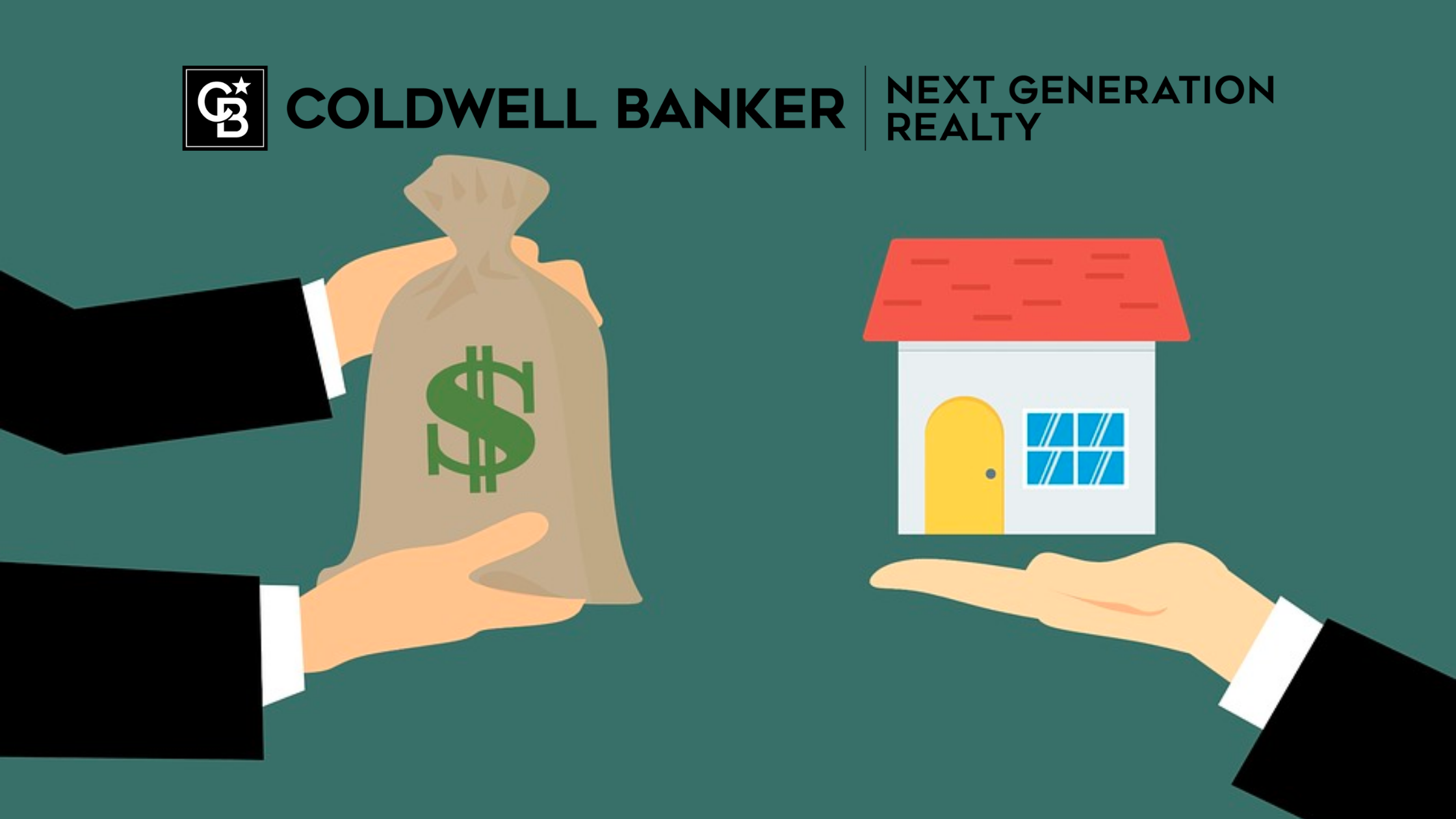There are a ton of steps you need to take when you’re buying a home,
and you could end up with a checklist that’s pages and pages long. With so many things on your to-do list — from finding a good realtor to getting pre-approved to making an offer to hiring an inspector, you’re likely to be swamped with gathering documentation, hitting open houses and writing checks. It can be easy to miss something along the way.
good realtor to getting pre-approved to making an offer to hiring an inspector, you’re likely to be swamped with gathering documentation, hitting open houses and writing checks. It can be easy to miss something along the way.
One phase of buying a home that’s usually underestimated and often forgotten about is closing costs. These are fees that are in every real estate transaction, and prospective homeowners should prepare.
What are Closing Costs?
Outside of saving for a down payment, closing costs might be the most stress-inducing component of buying a home. But the good news is that if you’re thinking about closing costs, you’re in the home stretch!
 When you “close” on a home, the title of the property you’re buying officially transfers from the seller to you, the buyer. This signals the end of what can sometimes be a nerve-racking process. The costs associated with closing on a home consist of fees accrued throughout the entire process and include:
When you “close” on a home, the title of the property you’re buying officially transfers from the seller to you, the buyer. This signals the end of what can sometimes be a nerve-racking process. The costs associated with closing on a home consist of fees accrued throughout the entire process and include:
- Paying a title company for handling all paperwork
- Paying local government offices for deed recording
- Attorney fees
- Courier charges, if any
- Fees for property surveyors
Buying a new home — especially if this is your home — might be the largest and most significant purchase of your life. Paying closing costs should give you the peace of mind that everything goes smoothly.
How Much Money for Closing Costs?
Typically, homebuyers pay 2-5% of the purchase price of their home in the closing process. According to real estate data firm ClosingCorp, the average for closing costs on single-family homes in 2019 was $5,749. For you, that number will be lower or higher, depending on the price of your home. Keep in mind that the final amount will be determined by:
2019 was $5,749. For you, that number will be lower or higher, depending on the price of your home. Keep in mind that the final amount will be determined by:
- How much money you actually end up borrowing (after subtracting the down payment)
- The type of mortgage you decided to go with
- The type of property
- The city, county, or state the property is in
When you complete your loan application, your lender will give you a loan estimate. This will provide you with a ballpark figure of closing costs for your particular situation. Here’s what to expect:
- Origination Fee: Typical ranges are from 0.5% to 1% of the loan.
- Credit Report Fee: Your lender pulls your credit score and the complete credit report. This can run up to $75.
- Appraisal Fee: An appraisal for a single-family home can cost anywhere from $450 – $650, and sometimes a lot more depending on how big the house is.
- Building Inspector: Fees for home inspections can range from $450 – $1,000.
- Property Survey: If needed, these can cost from $300 – $400.
- Legal Fees: Fees can range from $600 – $1,000 depending on your particular situation.
- Title Search: Fees vary by the municipality your new home is in, but you should budget for anywhere between $125 – $200.
- Title Insurance: The cost for title insurance varies a lot, but a good benchmark is to expect the fee to be about 0.5% of the home’s purchase price.
- Private Mortgage Insurance: If your down payment is less than 20% of the purchase price, you’ll probably have to pay PMI. Premiums average about 2.5% of the loan, with a portion of the total due at closing. Your loan officer can get it down to the dollar for you.
- Prepaid Interest: These costs can vary. And once again, your loan officer should be able to give you a firm number. To get an estimate, he or she will consider the cost of the interest from closing day until the end of your first month as a new homeowner.
- Homeowner’s Insurance: Expect to pay at least $600.
- Points: One point is 1% of your loan amount. What you will pay is based on how many points you agree to in your loan.
- Escrow/Closing Fees: The title company, escrow company, or attorney conducting the closing will require a fee for doing so. Expect a few hundred dollars depending on who is used and where you reside.
- Recording Fees: Range from $150 – $400. Once again, this is based on the municipality you’re in.
Want to keep costs down as much as possible? Try to schedule your closing towards the end of the month. This can help minimize overall expenses since interest is based on the remaining days in the month.
Can Closing Costs be Negotiated?
 Yes and no. Some closing costs — like attorney fees and commission rates — can be negotiable. But most are set in stone. Let’s dig in.
Yes and no. Some closing costs — like attorney fees and commission rates — can be negotiable. But most are set in stone. Let’s dig in.
NEGOTIABLE
- Homeowner’s insurance: Lenders also require that you take out a home insurance policy before buying a home. Depending on the age and location of your home, this can get expensive. But homeowners insurance policies are available everywhere, so shop around. You might even be able to get a discount if you bundle it with your car insurance. Others give discounts to non-smokers! Reason to quit?
- Title insurance: This type of insurance protects the lender if it’s later discovered that there is a lien. This is why a title search is done: to make sure the property is clear. You can shop around for less expensive insurance — title insurance rates can vary from provider to provider — and you can try to negotiate these rates. Good luck!
NON-NEGOTIABLE
- Appraisals: Before a lender loans you money, you’ll need to pay for a home appraisal. The costs will vary according to your home’s size and location. Your loan officer puts in the order for the appraisal, so you can’t really shop around — or ask for a discount. Sorry.
- Lender fees: These costs — which can include underwriting fees, application fees, document preparation fees, and processing fees — can not be negotiated down. If a lender charges one customer $2000 in total lender fees to one customer, they have to charge you the same. But fees can vary from lender to lender, so shop around!
- State taxes: No matter how much you try, you can’t get out of paying state transfer and recording fees. They vary from state and sometimes from county to county, but you can’t avoid them, so don’t even ask.
Who Pays Closing Costs?
 Unfortunately, it’s the home buyer who pays the majority of closing costs. Buyers can negotiate with the seller to pay some fees, but if it’s a seller’s market, that’s not likely.
Unfortunately, it’s the home buyer who pays the majority of closing costs. Buyers can negotiate with the seller to pay some fees, but if it’s a seller’s market, that’s not likely.
However, you can avoid closing fees as out-of-pocket costs by including them in your mortgage. If you go this route, know that you will incur interest charges on these fees, but at least you won’t have to worry about coming up with the extra money on top of your down payment and moving expenses.
Ready to Close?
Whether you’re getting ready to close or just starting your search, understanding closing costs will save you from a headache when it comes time to finalize the deal.
We hope you enjoyed our post:
Closing Costs – What You Can Expect to Pay
If you want to schedule a call or office meeting with one of our agents, visit our CONTACT PAGE
Links to our popular blog posts:
- Choosing The Right Real Estate Agent
- Emotions and Homebuying – Why They Don’t Mix!
- Home Inspections – 5 Things to Keep in Mind
Links to points of interest in Citrus County:




